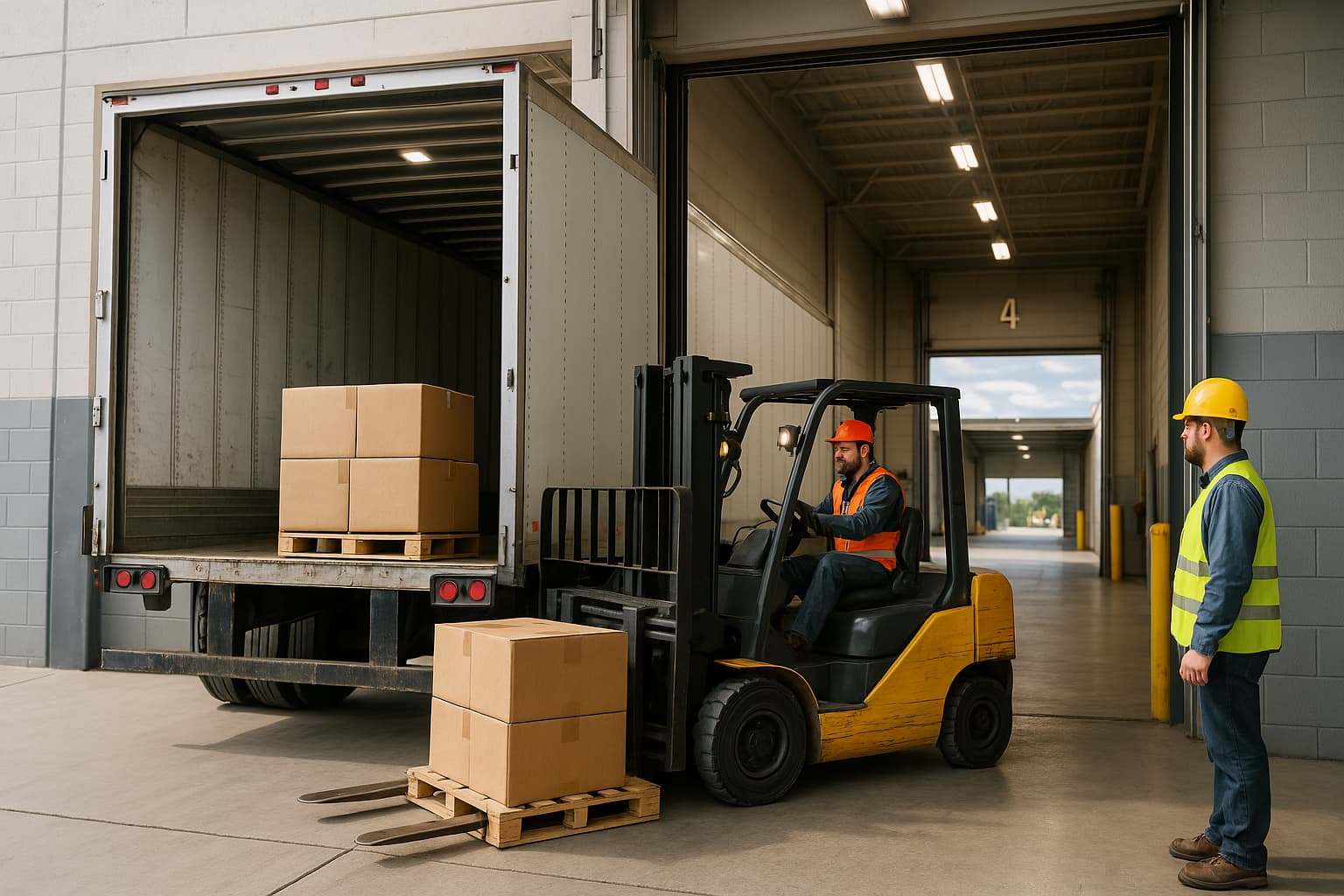The True ROI of Proactive First-Aid
Our CEO, William Waite, breaks down the impact on business safety and efficiency.
Read ArticleA complete suite of safety solutions to protect your workforce, ensure compliance, and reduce workplace incidents.
Our experts can build a solution tailored to your exact needs.
Request a ConsultationComprehensive solutions designed for your industry's specific risks and operational needs.
Proactively lower your OSHA recordable incident rate with our expert on-site response and documentation services.
Access safety and health services directly at your worksite for ultimate convenience and efficiency.
Improve safety ratings and lower costs by proactively managing and reducing recordable incidents.
Deploy our rapid response teams for immediate medical care during workplace emergencies.
Mitigate risks with pre-employment health screenings and compliant documentation.
Implement comprehensive substance use testing programs to maintain a safer workplace.
Equip your team with CPR/AED & First-Aid training for vital emergency preparedness.
Benefit from immediate first aid response available directly at your workplace.
Meet Department of Transportation drug testing regulations efficiently and accurately.
Ensure respiratory protection meets safety standards with our certified testing services.
Utilize our convenient, accurate drug screening services performed at your location.
Protect workers from heat stress with proactive monitoring and prevention programs.
Implement comprehensive safety protocols for production facilities with our expertise.
Address unique site risks with specialized safety services for the construction sector.
Enhance safety in logistics and storage facilities with our targeted solutions.
Ensure DOT compliance and operational safety in logistics and transit operations.
Ensure compliance and worker safety in food production with specialized services.
Address specific hazards faced by painting professionals with our safety programs.
Enhance safety standards in medical and care environments with our tailored programs.
Implement specialized protocols to manage risks in laboratory environments.
Deploy scalable, comprehensive safety solutions across large organizations.
Access tailored, affordable safety solutions designed for SMB needs.
Implement robust safety programs for government agencies and institutions.
Build a strong safety foundation from the ground up with our flexible solutions.
Transparent, pay-as-you-go pricing with no hidden fees. Find the right plan for your business size and needs.
Discover your potential savings by switching to our on-site services. Reduce costs and improve your bottom line.
Explore expert articles, in-depth guides, and technical documentation to master workplace safety and compliance.
A step-by-step guide to implementing an effective on-site first-aid program that reduces OSHA recordables.
Your gateway to maximizing the value of our services. Access resources, success stories, and expert support.
Our getting started guide will help you hit the ground running and achieve your goals faster.
Guides and checklists to kickstart your journey with QuickCare.
Learn proven strategies for rolling out QuickCare services.
Access our library of product guides and technical docs.
Actionable advice for fostering a safer workplace environment.
Get quick answers and access troubleshooting resources.
Access your dedicated account manager for personalized assistance.
Connect with other safety professionals to share best practices.
Find resources for around-the-clock urgent safety concerns.
Find QuickCare services in your area. We serve the Bay Area, Northern California, and expanding to Georgia.
View All Service Areas arrow_forwardWe're excited to bring our proven workplace safety solutions to Georgia businesses.
Explore Georgia ServicesVisually explore our service areas, check response times, and see how we support your industry across the Bay Area.
Explore our library of articles, videos, and professional resources from industry leaders in workplace safety and compliance.
Subscribe to our newsletter for the latest safety insights and regulatory updates delivered to your inbox.
Subscribe NowDiscover the mission, people, and values driving our commitment to workplace safety innovation.

Our team is composed of industry veterans dedicated to excellence.
View The TeamHelp us build the future of workplace safety. View open positions.
The complete solution for OSHA-compliant respirator medical clearances and program management.
Estimate your potential savings and see the real ROI of streamlining your respiratory compliance program.
Keep your warehouse moving when injuries happen. QuickCare provides rapid, on-site medical response and mobile compliance services designed for high-throughput distribution environments—helping reduce disruption, support OSHA recordkeeping, and protect your team.
Fast response for all shifts
On-site care that reduces time off the floor and keeps production stable.
Clear documentation
Incident notes that support internal review and OSHA recordkeeping decisions.
Designed for warehouses
Coverage for ergonomics, equipment operations, and fast-paced fulfillment workflows.
Warehouses operate with tight throughput targets, mixed pedestrian/equipment traffic, and repetitive material handling. That combination increases injury risk—and it also increases the cost of delays, off-site clinic runs, and inconsistent incident documentation.
Repetitive lifting, awkward postures, and high pick rates can turn “minor” discomfort into lost-time incidents—especially when early care and clear work restrictions are missing.
trending_up High-frequency injuriesSpills, floor transitions, dock plates, and congested aisles create preventable hazards. When response is slow, the operational ripple effect can be larger than the injury itself.
visibility Often preventableForklifts, order pickers, conveyors, and automation increase efficiency—but raise risk when traffic patterns are unclear, training is inconsistent, or impairment goes undetected.
warning High-severity potentialImproper stacking, damaged rack systems, and rushed replenishment create struck-by and crush risks—along with compliance exposure during audits and inspections.
inventory_2 Compliance exposureTargeted prevention starts with visibility. These zones consistently drive incidents in distribution environments and benefit from clear response plans, traffic controls, and rapid on-site care.

High throughput + elevation changes + truck interfaces = higher consequence when controls break down.

Elevated storage and rapid replenishment increase struck-by risk and ergonomic strain.

Repetition, speed, and tool use drive strains, hand injuries, and minor trauma that can escalate without early care.

Where people and machines cross paths, small visibility gaps become major risk.
In distribution environments, early intervention matters. Fast evaluation and practical work recommendations can help prevent minor symptoms from becoming recordables, claims, or lost-time events.
Warehouse teams perform repetitive lifts, pushes, pulls, and reaches—often under time pressure. When discomfort starts, delays and off-site clinic trips can increase both disruption and downstream cost.
The goal is simple: help your team get appropriate care quickly, keep operations stable, and avoid avoidable escalation caused by delays or inconsistent next steps.

Build a safer warehouse with services designed for shift work, peak season demands, and the realities of high-speed material handling. Mix and match based on your facility’s risk profile.
Professional care delivered directly to your facility for common warehouse injuries—reducing disruption and supporting accurate case classification for OSHA recordkeeping.
Mobile testing programs that help validate fitness for duty—especially for equipment operators, safety-sensitive roles, and post-incident decision-making.
On-site training that supports readiness and compliance—built for multilingual teams and warehouse schedules.
On-site fit testing and respiratory compliance support for teams exposed to airborne particulates, chemicals, or high-dust operations.
Use this quick calculator to estimate how reducing incidents can impact annual cost exposure. This is a planning tool (not a guarantee) and works best when paired with your recent OSHA logs and claims history.
If you want a facility-specific plan, QuickCare can review your injury trends (by task and zone), then recommend a practical response and prevention approach aligned with your shift structure and throughput goals.
Calculator uses a simple 40% illustrative reduction assumption for planning. Actual outcomes depend on baseline conditions, operations, and program design.
A warehouse program works when it’s operationally realistic: fast response, consistent documentation, and services that don’t slow production.
A high-throughput site with mixed pedestrian/equipment traffic and recurring strain/sprain events wanted to reduce off-site clinic utilization and improve incident consistency across shifts.
The safety team faced uneven response during nights/weekends and frequent “default to urgent care” decisions that increased downtime and complicated recordkeeping.
QuickCare implemented on-site response workflows, aligned escalation criteria with the site’s safety leadership, and added on-site testing options for safety-sensitive roles when needed.
Outcomes vary by facility and baseline. Across clients using QuickCare on-site first-aid services, recordable reduction has been observed up to 93%‡. Most sites also report fewer off-site trips and improved shift-to-shift consistency.
Common questions about warehouse safety solutions and how QuickCare supports distribution operations.
This reduces operational disruption by avoiding unnecessary off-site clinic trips while ensuring employees receive prompt evaluation and care.
Across clients utilizing on-site first-aid services, recordable reduction has been observed up to 93%‡.
QuickCare provides on-site programs including random testing, reasonable suspicion, and post-accident testing.
For serious injuries, QuickCare can provide initial support while coordinating escalation to emergency services when necessary.
Yes. QuickCare supports warehouse operators with single-site and multi-site needs. We can standardize response workflows and reporting expectations while adapting to each facility’s access controls and operational schedule.
To confirm coverage for your locations, use our Service Areas page or request a consultation.
If your goal is fewer disruptions, fewer unnecessary off-site trips, and clearer incident handling, QuickCare can help. Start with a quick consultation and we’ll map services to your facility’s risk zones and shift schedule.
† To maintain the integrity of the average response time for typical engagements, data from clients whose operational environments impose external, non-controllable delays (e.g., travel time by boat to remote islands, prolonged security checks at high-security facilities) were mathematically excluded.
‡ Average reduction observed across QuickCare clients utilizing on-site first-aid services. To accurately reflect typical client outcomes, we excluded data from clients with influencing factors (e.g., historically negligible incident rates where any change would appear exaggerated, or those undertaking comprehensive, non-QuickCare-related safety transformations).